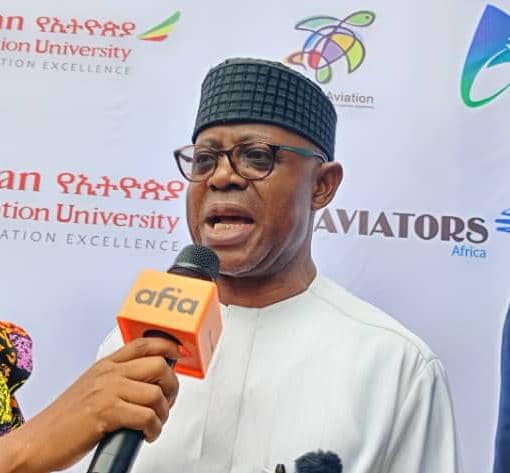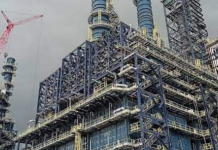By Capt. Evarest Nnaji
As we take seriously, the need for a realistically more robust economic activities cum development of Southeast Nigeria where potentials of Ndigbo could be harnessed and deployed towards the end of attaining the full economic potential possibilities and eco By Capt. Evarest Nnaji nomy of scale befitting of a people whose ingenuity and can-do spirit permeate all spheres of business endeavour, there is the need to firstly identify realisable paths to which focus should be placed in order to achieve the aim of industrialization and commercialization of the zone and in record time without frustration.
Over the years, Ndigbo, home and diaspora, have been pregnant and in deep hunger to unleash their potentials and develop their homeland. Many have great hopes that someday, there will be good and conscientious leadership with the capacity to engender an overarching economic plan capable of pooling the business ingenuity of Ndigbo together to build a Japan-of-sort economy in West Africa on the strength of the attested resilient spirit of industry for which Ndigbo are known all over the world. This expectation has never been more apparent in no other time in history than now.
As this expectation is ripe in every mind, to prime our spirit, Ndigbo must be aware of a deep pitfall, a clear and present danger capable of draining our energy and causing debilitating frustration and which must be avoided like a plague.
This plague is the fallacy and misleading presumption that Ndigbo must have a seaport before the southeast could become an industrial or commercial hub. This lie sown in our minds, and which no one knows when it was sown, has been in the narrative over the years prompting deceptions, every now and then, of the possibility of one seaport or the other in Igboland, especially the often touted Onitsha Seaport. A cursory look at the Google earth map will show you that there is no part of Southeast anywhere near the Atlantic Ocean.
Onitsha Seaport:
River Niger, like all seven rivers of Africa; Nile, Niger, Senegal, Congo, Orange, Limpopo and Zambesi, are drying up due to global warming. In fact, you can walk across the river Niger (not swim) during the Dry Seasons nowadays. High water levels can only be guaranteed during the rainy seasons, and that can only sail floating badges, not ocean-going ships. Therefore, ocean going ship making it to Onitsha is never ever going to be possible, even with the suggested dredging of the river Niger; because dredging cannot introduce more water when the source flow is now so tiny. The only possible means to introduce huge water flow will be to dig the Niger riverbed down to a point where the Atlantic Ocean could flow back up to Onitsha.
Before we go further, let me be clear that our conversation here is about seaport for ocean going ships. Ships from Asia, Europe, USA etc that can only sail to West Africa and Nigeria through the Atlantic Ocean. I am not arguing the present port at Onitsha where floating badges that carry less than 18 containers of cargo from Lagos ports berth, 18 trailers can do that by road; that kind of deception will not help the Southeast; and that is not what I am discussing here.
Onitsha located along the edge of the river Niger at the lower boundary of Anambra and northern part of Delta State, is situated at 62 meters MSL (main sea level). That means to excavate the floor of the River Niger from Onitsha point to where it comes to par with the Atlantic Ocean, you would have to dig deep down to 62 meters. Then, to have the Atlantic flow back up to Onitsha, experts say you would need to dig deeper down to another 50 meters. Furthermore, to guarantee dept enough for ocean going ships to freely navigate, there would be additional 50 meters, making the total dept required to 162 meters from the current floor of the Onitsha end of the river Niger. Experts also report that due to the curvature needed to ensure that earth will not cave into the dug trench and to enable ships pass each other in the Onitsha to Atlantic Ocean channel, the width of the channel would have to be at least 1,600 meters. From Onitsha, following the natural tracks of the river Niger through lower end of Delta State, River State and Bayelsa State, to the Atlantic Ocean, measures 210 km. The question here is, even if we found the political will for such project, can Nigeria find the money to dig 162 metres dept and 1,600 meters wide from Onitsha, 210 km long, to the Atlantic Ocean to have a seaport at Onitsha?
Again, at the Bayelsa State and Delta State end to the Atlantic, there are labyrinths of oil and gas pipelines crisscrossing the entire region where the entry to the ocean will be needed. Can such critical national assets be destroyed to enable ships sail to the Onitsha seaport?
In addition, the height of the just completed second Niger bridge is too low such that no ship can pass under it, this indicate that the designers of the bridge were equipped with the above information; that no ocean-going ship or vessel will ever go to Onitsha.
There are great cites and societies around the world without seaports doing just fine, Southeast Nigeria can be like them. We need not be fixated on seaport; it is a distraction that can lead to frustration, especially as we have the possibility of a much better modern means to move goods and services across the globe and should focus on it. In USA, the cities of Las Vegas, Phoenix Arizona, Dallas, New Mexico City etc, in Europe, Milan in Italy; Munich in Germany, Austria etc, have no seaports but they are doing great, none availability of seaport has not hindered their development or make them inferior to any other city.
In modern air travel, it is proven that there is nothing you cannot move by Air Freight. The only difference could be in packaging. Giant industrial materials are disassembled and packed in smaller units or compartments and shipped by Air Cargo. A full luxury bus of 42 passengers seating capacity can drive into an Anthonov air cargo plane nowadays, and within 24 hours be delivered at the other end of the world. The only thing you may not see is the iron-body ocean shipping containers, but the same amount of goods are packed in pallets and by air cargo shipped effortlessly across the globe in our today’s world.
Moreover, if for instance you have funds to import one container of goods into Nigeria at one time, you could only do just four containers (4 times) in 12 months; that is at three months for one container of goods into Nigeria by ocean freight. While as you can import the same amount of goods twice every month by air cargo. That means 24 times in 12 months. So, even if you would make 30 percent profit from the ocean container goods, due to the cheaper cost of shipping, if you make 15 percent profit on the air cargo shipped goods, you are still going to make more money at the end of the year since you would have done 24 rotations of the same amount of goods – speed!
In Enugu, there is a 3-kilometre runway International Airport, within the city, that can take any cargo airplane in the world. From Enugu airport, the farthest part of Asia, Japan, is only 7,019 nautical miles (13,000 km). Beijing China is 6,090 nautical miles (11,280 km). The farthest of the West is Vancouver in Canada, which is 12,000 kilometres from Enugu, to name but a few. A Boeing 777 cargo or passenger airplane has a nonstop flight range of 17,205 kilometres. So, from the Southeast you can reach the entire world on a nonstop flight with many models of modern aeroplanes.
In Igboland, there is still Owerri airport; Anambra airport and Ebonyi airport. So, we are all set to launch our development if we can all focus our mind on this modern means of movement of man and materials and go further to acquire the expertise required for the full indoctrination of our people in the activities of aviation for we cannot afford to rely on other people to provide for us this basic means by which our economic development would be driven.
Hence, my commendation for the organisers of this event; Aviation Career Meet, at this prestigious university, Coal City University Enugu.
Aviation industry offers innumerable opportunities to any society that avails it. Careers in the industry offer training and expertise in divergent areas for men and women alike and the opportunity to excel anywhere in the world, if properly trained. I am quite delighted this university is partnering with another international institution in USA to bring to the Southeast the level of trainings and degree programs that will be a without-which-not to power the region’s aviation manpower development that will propel its desired development and industrial drive. Aviation being the best and the only viable means to fast track the imperative development of the Southeast, will suffer a serious setback if forward thinking investors and institutions fail to move in now to begin urgent trainings and orientations of our young ones into the industry. The industry is open to trainings in things about the airport and facilities; aircraft flight operations and maintenance, like pilot trainings; aircraft engineers; cabin crew etc. You also have Flight Operations Management; Flight Dispatchers; Material and Logistics Management; Ramp Services; Airline Safety Auditors; Air Cargo Operations and Management, as well as Aircraft Maintenance Planners; Airline Technical Records and Document Control; Aviation Equipment and Spares Store Management etc. These and many other opportunities abound in the industry.
In conclusion, the way forward for Southeast to fast track the desired mega economic development capable of attracting their best brains, human and material resources, and provide our pride of place in the West African market, is to invest in the development of the existing airport infrastructure diligently and deliberately to the best possible international standards. This will mean also, to train and assimilate the young ones in the modern aviation credentials and encourage the regions potential investors to invest in the industry so as to have a permeable and strong foothold that will stimulate a booming economic activity and guarantee the future of the region’s economy.
Presented by:
Capt. Evarest Nnaji
At The Aviation Career Meet – Coal City University Enugu on the 24th August 2023







